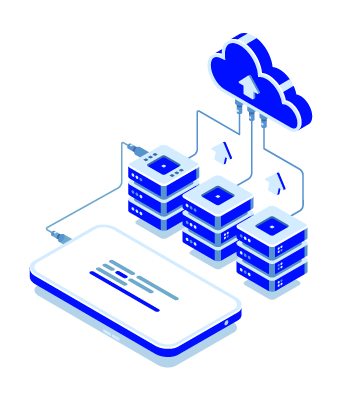
Cloud allows us to quickly and easily access and store information anywhere, anytime in the entire world, using an internet connection.


















Cloud Consulting solutions are architecture based on customer requirements. The cloud solutions consultancy service we offer helps clients map their cloud strategy to both their business and their digital transformation plans.











It is ultimately up to your company to decide which level of cloud integration it needs. You can choose between single-cloud and multi-cloud.

A The KPIs you establish will help you measure your cloud migration's success.

A component-by-component migration or multi-component migration are both options for resource allocation and deadlines. Depending on your business priorities, you'll have to devise a viable strategy for aligning your components for migration.

In the event of data migration, a data migration plan is essential for ensuring minimal disruption and downtime in the business.

In computing and storage, the management and allocation of resources must occur in the cloud, fog, or edge nodes.

Establishing the cloud migration architect role is the first step in the migration process.

A multi-cloud architecture uses multiple cloud computing services simultaneously in a single heterogeneous architecture.

Establishing a performance baseline is necessary for quantifying performance changes based on changes in your load or application.

Refactoring involves making many small changes to code without altering its external behaviour. Maintaining long-term code quality, security, and performance requires refactoring.

Your cloud provider will help you establish a data migration plan, moreover, any necessary refactoring to ensure you have a holistic view of your data. Afterwards, you can switch to the cloud and review application resource allocation to ensure you're experiencing the efficiency gains you expected.
Public cloud - is cloud computing that is delivered via the internet and shared across organizations.
Private cloud - is cloud computing that is dedicated solely to your organization.
A hybrid cloud - is an environment that uses both public and private clouds.
IaaS (Infrastructure as a service) - is also known as Hardware as a Service (HaaS). It is a computing infrastructure managed over the internet. The main advantage of using IaaS is that it helps users to avoid the cost and complexity of purchasing and managing physical servers.
PaaS (Platform as a Service) - a cloud computing platform created for the programmer to develop, test, run, and manage applications.
SaaS (Software as a Service) - is also known as “on-demand software”. A cloud service provider hosts the applications. Users can access these applications with the help of an internet connection and a web browser.
BaaS( Backup as a Service) - is also known as cloud backup that requires a modern alternative to traditional data approaches. Instead of building and maintaining in-house data backup solutions, businesses and organizations purchase backup and recovery services from outside; cloud service providers. The advantage of cloud backup is that it is more cost-effective, requires less maintenance, and is safer and more reliable than traditional backup.